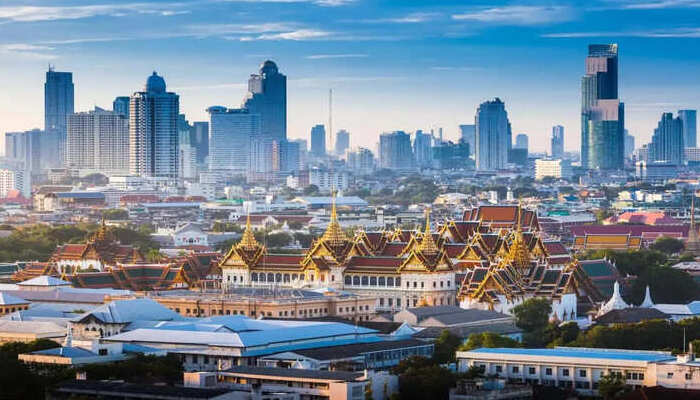
Thailand’s Gaming Legalization May Open $15.1B Market for Macau
The legalization of gaming in Thailand could open up a $15.1 billion market, potentially reshaping the regional gaming scene. Analysts at CLSA view this development as offering ‘more opportunities than threats’ for Macau’s gaming operators.
In a comprehensive 100-page study, analysts Jeffrey Kiang, Naphat Chantaraserekul, and Leo Pan suggest that with the first entertainment complex expected to debut by 2029, Thailand’s emerging gaming industry is likely to attract considerable interest.
While the potential rise in Chinese tourists—a crucial segment in Thailand’s post-pandemic tourism recovery—could impact the market, the distinct differences between Macau’s and Thailand’s tourism experiences are expected to help Macau’s gaming sector remain resilient.
Macau, with its established gaming infrastructure and unique cultural appeal, offers a different experience compared to Thailand’s developing market. Thailand’s tourism, known for its affordable, high-quality offerings, has quickly bounced back from the pandemic, with visitor numbers projected to reach 35.5 million in 2024, just 11 percent below pre-pandemic levels, according to the Bank of Thailand.
Looking forward, China and India, which made up 33 percent of Thailand’s visitors in 2019, are expected to drive long-term growth. With travel penetration rates of 0.8 percent for China and 0.1 percent for India—significantly lower than other Asian countries—there is considerable growth potential.
Although Thailand may become a new growth engine for Macau’s gaming operators, analysts believe that the legalization of gaming in Thailand ‘will not significantly cannibalize Macau’s tourism market.’ The differences in visitor profiles, such as duration of stay and origin, support this view. This diversification in tourist attractions suggests that both markets can thrive and potentially benefit from regional tourism synergies.
Macau’s casino operators are increasingly viewing Thailand as a promising growth avenue for the next 20 years. With supportive policies and a strong tourism sector, Thailand could develop into a $15.1 billion gaming market, potentially becoming the world’s third-largest by 2023. Singapore is seen as the most comparable market to Thailand, according to CLSA’s research.
Under the proposed 17 percent gaming tax rate, Thailand’s entertainment complexes are expected to achieve an EBITDA margin of 40 percent or more once fully operational. This compares favorably to Singapore’s integrated resorts, which have achieved EBITDA margins of around 50 percent with a similar tax rate.
In contrast, Macau’s properties, facing a 40 percent gaming tax rate, have EBITDA margins between 25 percent and 30 percent. Therefore, Singapore serves as a more relevant benchmark for assessing Thailand’s profitability compared to Macau, according to CLSA.
With a minimum required investment of $2.7 billion per license holder, Thailand’s gaming properties are expected to offer significant economic value compared to Macau’s six concessionaires. The favorable tax rate and potentially less stringent regulations on table and slot machine counts make Thailand an appealing investment destination.
CLSA estimates that the return on invested capital (ROIC) in Thailand could reach up to 23.9 percent, surpassing the weighted average cost of capital (WACC) of 9.6 percent to 13.2 percent for the six Macau companies.
The expansion of Thailand’s land-based gaming market is anticipated to impact the broader Southeast Asian gaming landscape, with significant implications for regional operators. CLSA’s research suggests that while there may be some risk of cannibalization, particularly in markets similar to Singapore, the threat to Macau remains limited due to its unique appeal to mainland Chinese tourists compared to Thailand’s international visitor base.
Among Macau operators, ‘Galaxy is likely to face the greatest impact’ due to its interest in expanding beyond regional markets and its financial capability. In contrast, ‘Melco and SJM are less likely to pursue a Thai concession’ due to their current strategic focuses and financial constraints.
‘SJM will prioritize ramping up its Grand Lisboa Palace, while Melco, despite potential interest, may be hindered by its current debt levels.’
For US-based Macau operators, MGM is expected to increase its dividends to support MGM Resorts’ venture in Thailand, and Wynn Macau and Sands China might see similar support from their parent companies in bidding for a concession.
Read: Thailand Fast Tracks Casino Resort Study
Source: AGB
Other Interesting Articles
 Donaco Reports Strong Q2 Results Amid Operational Challenges
Donaco Reports Strong Q2 Results Amid Operational ChallengesJul 29, 2024











